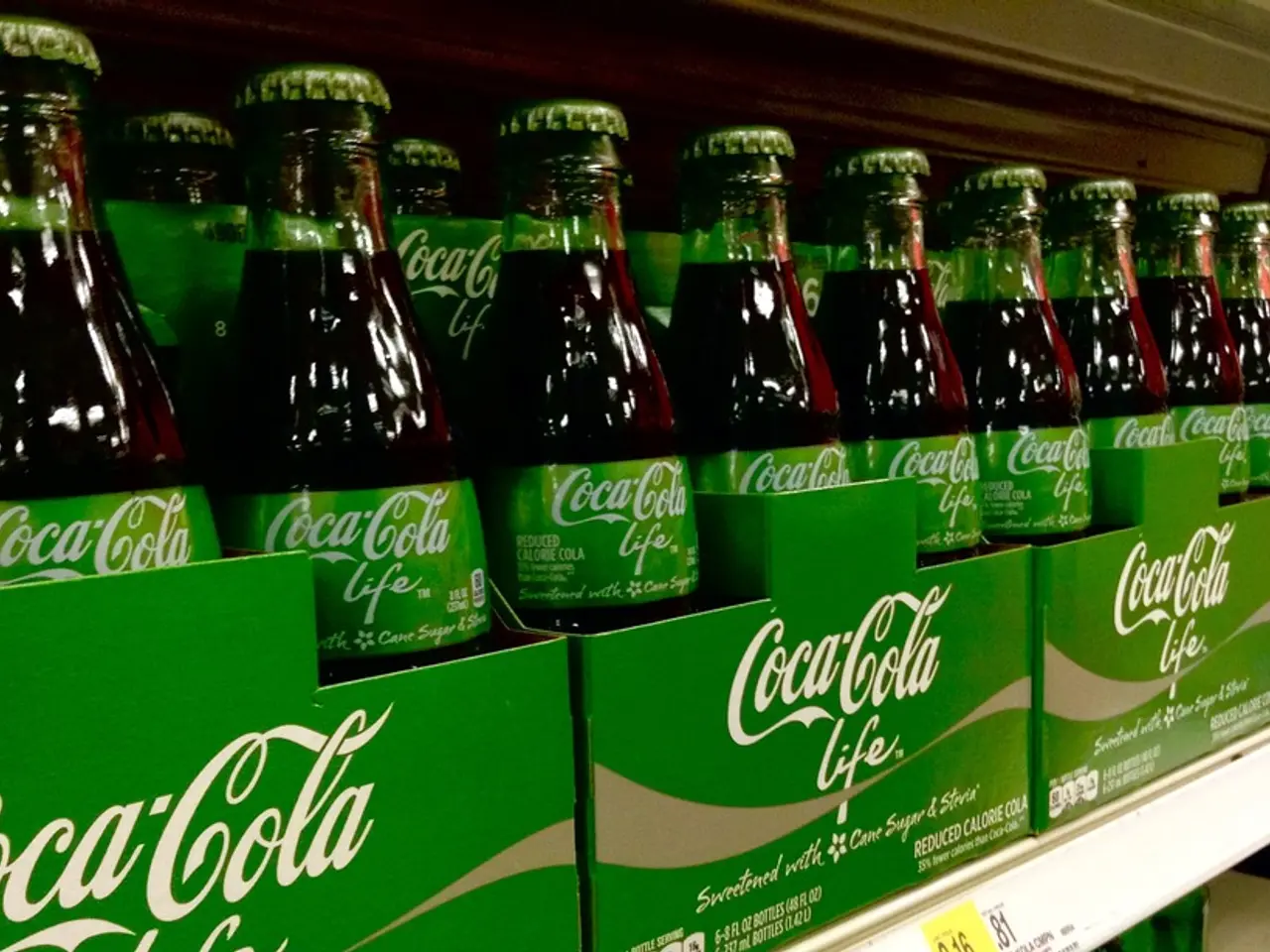Is it worth buying Coca-Cola (KO) shares following Trump's declaration?
In a move hailed by former President Donald Trump as consumer-friendly and health-conscious, Coca-Cola has announced its intention to use cane sugar in its U.S. beverages. This decision, however, has elicited a swift and mixed response from relevant industry stakeholders, particularly the U.S. sugar and corn sectors.
The sugar industry, which stands to benefit from increased demand, has welcomed the announcement. With sugar futures trading higher following the announcement, U.S. cane sugar producers could see a boost. However, the limited domestic production of cane sugar (3.7 million metric tons annually) compared to beet sugar and corn syrup (4.6 million tons and 7.3 million tons respectively) could necessitate imports, potentially constraining any immediate supply response.
The corn industry, on the other hand, has expressed strong opposition. The switch to cane sugar from high fructose corn syrup could lead to a significant reduction in demand for U.S. corn, negatively affecting thousands of agricultural jobs tied to corn production and corn syrup processing. Agribusiness giants and regional corn promotion boards are expected to fiercely resist the change, not only for economic reasons but also because of the broader implications for U.S. agricultural policy.
Coca-Cola itself has not fully confirmed the extent or timing of the switch, stating only that "more details on new innovative offerings within our Coca-Cola product range will be shared soon." This suggests the company may be planning a phased or product-specific rollout rather than an immediate, nationwide formula change.
The move is politically charged, with Trump framing it as a pro-consumer, pro-health initiative, while the corn lobby warns of job losses and a hit to U.S. agriculture. The economics are also notable: switching to cane sugar would be expensive for Coca-Cola and its bottling partners, given the need to reconfigure hundreds of facilities currently optimized for corn syrup.
The controversy highlights the deep entrenchment of corn subsidies in U.S. agricultural policy and the political sensitivity surrounding sweetener choices in major consumer products. As the market awaits more official updates and confirmations from all parties involved, the future of Coca-Cola's U.S. beverage formula remains uncertain.
**Key Points:**
- The sugar industry stands to gain from Coca-Cola's prospective switch to cane sugar, while the corn industry is resisting, citing economic and employment risks. - Coca-Cola remains noncommittal pending further details about the extent and timing of the switch. - The controversy highlights the deep entrenchment of corn subsidies in U.S. agricultural policy and the political sensitivity surrounding sweetener choices in major consumer products. - Shares of Archer Daniels Midland (NYSE: ADM) and Ingredion (NYSE: INGR) dropped significantly in after-hours trading following the announcement. - Coca-Cola, a cornerstone in the consumer staples sector, has a long record of annual dividend increases, exceeding 60 years, making it a 'Dividend King'. - Berkshire Hathaway (NYSE: BRK.B) holds roughly 400 million KO shares and earns $816 million annually in dividends from Coca-Cola. - At press time, KO shares were trading at $69.37, up 0.14% in pre-market. - In Q1 2025, Coca-Cola posted a 6% organic sales growth, outperforming its chief competitor, Pepsi (NASDAQ: PEP), which reported a 1.2% increase in the same metric.
Investing in U.S. cane sugar producers could potentially see a boost due to Coca-Cola's decision to use cane sugar in its U.S. beverages, as increased demand is expected. However, the corn industry is strongly opposed to this change, as they fear a significant reduction in demand for U.S. corn could lead to thousands of agricultural job losses and negatively impact corn syrup processing.




